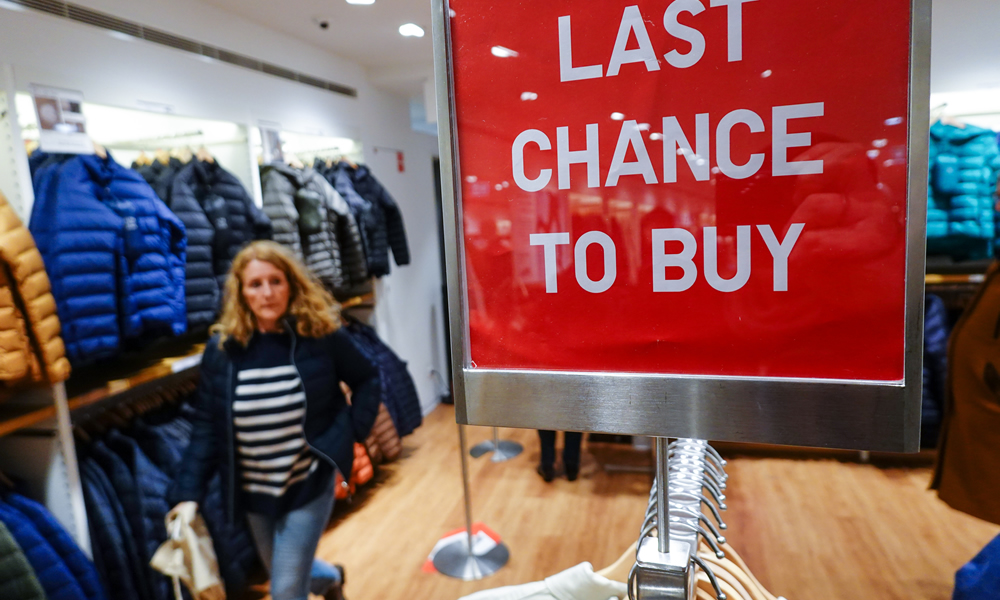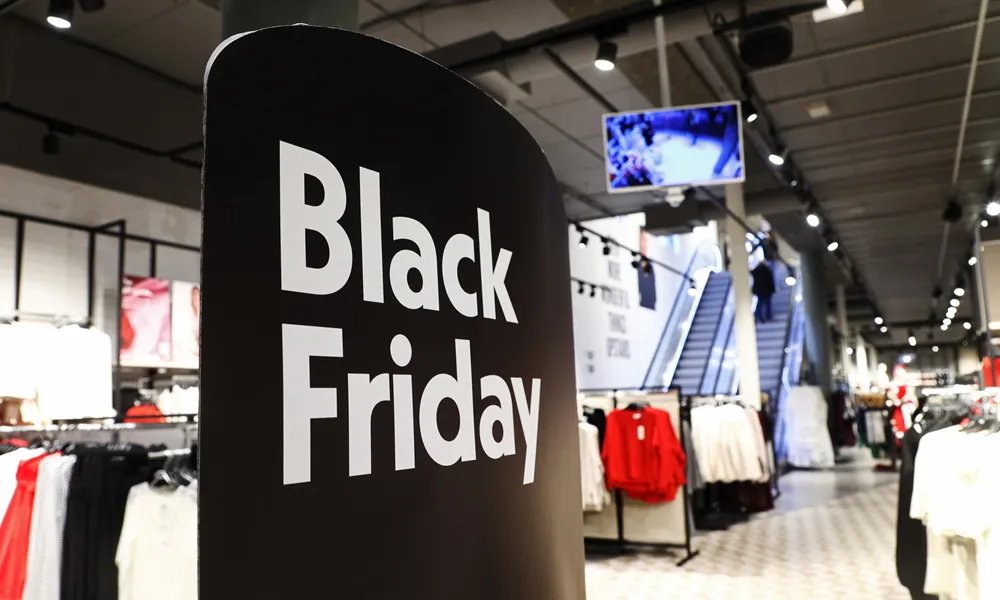Black Friday, once an American retail phenomenon, has evolved into a global commercial ritual, and Cyprus has not been left out. Yet, beneath the flashing banners and countdown timers, the island’s relationship with this imported tradition remains measured, shaped by local habits, economic caution and a growing sense of consumer fatigue.
From Philadelphia to Cyprus
The term “Black Friday” first appeared in Philadelphia in the late 1950s, coined by local police to describe the chaos and traffic jams following Thanksgiving, when crowds surged into the city to begin their Christmas shopping. Retailers later reinterpreted the term in the 1980s as the day they moved “from red to black” in their ledgers, marking profitability, and gradually turned it into a national shopping event. By the early 2000s, Black Friday had become the biggest retail day in the United States.
The rise of online commerce transformed the tradition even further. In 2005, the National Retail Federation coined “Cyber Monday” to capture post-weekend digital spending, stretching Black Friday from a single day into a week-long shopping marathon.
Cyprus joined the trend in the late 2010s. Major chains and malls began adopting US-style campaigns around 2017, with early reports noting record card payments and crowded stores. Since then, however, the excitement has mellowed. Today, the annual event generates moderate traffic, modest discounts and recurring complaints about misleading offers.

Selective enthusiasm at home
Cypriots know what Black Friday is, but they are not swept away by it. Awareness is high, but participation is cautious. Fashion performs better than tech, and discounts typically hover around 20-30%. The sales often stretch over a week, reducing urgency and blurring distinctions between genuine offers and routine promotions.
Official data from Cystat confirm that November sales rise each year, but the spike is limited. Retail turnover grew by 12.4% in November 2022, 5.7% in 2023 and 7.2% in 2024, suggesting steady but unspectacular movement. Card processor JCC reported that transactions during Black Friday week once jumped 21% above a normal week, but recent years show flatter trends.
Consumer confidence remains fragile. Each season, the Consumer Protection Service and the Consumers’ Association warn of inflated “before” prices and deceptive advertising, urging the public to verify real discounts.
Retailers, revenues and restraint
Profit margins from Black Friday remain elusive. Retailers rarely disclose them, but analysts note that widespread discounting compresses profit even when turnover rises. The event offers a short-term boost rather than a windfall, particularly when promotions are extended over several days.
According to Cyprus Retail Trade Association general secretary Marios Antoniou, 2025 could see a livelier turnout as the date coincides with salary payments. He told Politis that Eurostat data show Cyprus recording the highest turnover increase among EU member states for the fourth consecutive month, adding that tourism has also fuelled consumption. “Cypriot consumers have regained confidence, but they now buy more intelligently,” he said.
Still, the landscape is fragmented. Small-business union POVEK continues to call for legislation defining when and how sales can occur, arguing that the absence of rules erodes credibility. “Everyone does as they please,” said general secretary Stefanos Koursaris. “Public trust in the real value of sales, and especially in Black Friday, has been lost.”

Fading glamour and cultural adaptation
The Consumers’ Association describes the day as “faded” in Cyprus. Legal officer Virginia Christou noted that while November 28 will feature discounts in clothing, footwear and electronics, many retailers have already offered deals earlier in the season. She added that discounts in Cyprus rarely exceed 40%, compared with up to 90% in the U.S., and that some businesses advertise “up to 75% off” when only a few products truly reach that mark.
Large retailers, however, continue to embrace the spectacle. Stephanis, Kotsovolos, Public, Electroline and Bionic all run dedicated multi-day campaigns, complete with vouchers, microsites and radio tie-ins. These operations borrow from American marketing, blending online-offline strategies with local flavour.
Overt capitalism, Cypriot edition
Black Friday’s function has long outgrown its practical origins. It now acts as an annual ritual of consumption, compressing festive spending into a moment of collective urgency. The theatre of discounts reshapes perceptions of value and nudges consumers toward accessories, financing schemes and loyalty programmes.
In Cyprus, the adaptation is polished but restrained. Mall activations, influencer tie-ins and “limited-stock” announcements create spectacle without frenzy. Smaller shops feel obliged to join, even at thin margins, while buyers weigh whether the savings justify the hype. The day has become less about bargains and more about belonging, an imported celebration of consumer culture in a society still negotiating how far it wants to follow.
